Bio Art
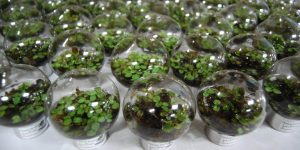
Adopt the World
Verena Boheme (DE), Joaquín Fargas (AR)
This project consists of natural ecosystems isolated inside sealed containers that only allow the external influence of heat and light. The objective is to collaborate actively on raising awareness about the fragility of our planet and the importance and urgency of its care. With the concept that ¨the world is not for sale¨, the small biosphere adoption program was born; small worlds that represent our planet on an infinitesimal scale.
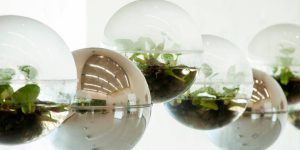
Latinamerican Bioart Lab
Alejandra Marinaro (AR)
The Latin American Bioarte Lab (LatBioLab) explores more than 12 years of bioart in Argentina, from "The Biosphere Project" by Joaquin Fargas (AR), to "Cellular Seeds" by Alejandra Marinaro.
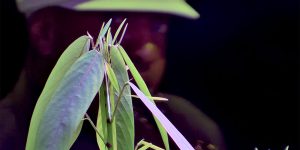
Hypergravity Bio Portal
Christiaan Zwanikken (NL)
As part of the plant becomes a machine becomes a plant project of Vrije Universiteit Amsterdam, Gerrit Rietveld Academy, Waag Society, V2_the lab for unstable media and Zone2Source, Christiaan Zwanikken started an experiment to grow a variety of red-leaved basil plants under hyper-gravitational conditions. Hypergravity is able to stimulate plants at a cellular level and changes the physiology in interesting ways.
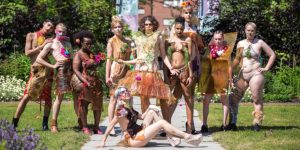
Organic fashion: Chemistry and LHBTQ+
Iza Awad (NL)
In a world of rapid consumption, we constantly deplete natural resources to deliver new fashion trends. Iza Awad, a master’s student in chemistry, a joint degree of the Vrije Universiteit Amsterdam and University of Amsterdam, tackled this issue in his research project by producing fabrics from cellulose material that constantly grows in kombucha, a fermented tea drink. Awad also showed that the biopolymer is especially well suited to contain living plants and other photosynthetic organisms.
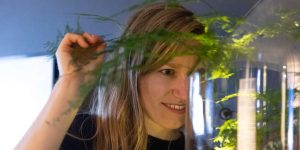
The Living Light
Nova Innova (NL)
There is a ground-breaking technology, called Microbial Fuel Cell (MFC) technology. This technology enables us to generate energy from organic waste: from compost to mud, from urine to plants. All organic waste streams are turned into sustainable energy sources thanks to this innovative technology.
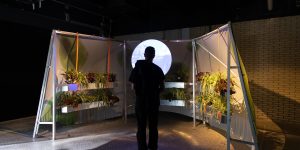
Data Garden
Cyrus Clarke (UK), Monika Seyfried (PL), Jeff Nivala (US)
Working with nature to respond to the threat of Data Warming, Data Garden invites visitors to experience a new materiality around data, and explore a world in which data storage is truly green. This type of organism-based data centre is designed to inspire new models that bring principles of working with nature to data, creating regenerative data ecosystems.
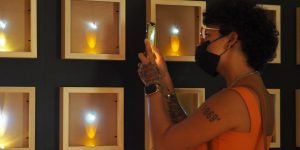
How to Make an Ocean
Kasia Molga (UK/PL)
Inquiry into the possibility of using human tears to support and nourish basic marine life, the emotional impact of online information technology on our psyche and whether AI can help us embrace loss and grief and shed some tears in return - so that we can contribute to creating new mini-oceans.

Growing Colors
Sabine Hild (AT), Institute of Polymer Science JKU; Julia Moser (AT), Fashion & Technology, University for Art and Industrial Design Linz; Patrik Radić (AT), Microbiology TU Graz; Laura Holzinger (AT), Chemistry and Chemical Technology JKU
There are qualities to bacteria that we may not be able to experience through our senses only. Our project makes visible the hidden colors of bacteria in our immediate environment. It shows their potential in the dyeing process for textiles, to make the world not merely more colorful — more blue, or yellow, or red—but also “greener“ and more sustainable.

